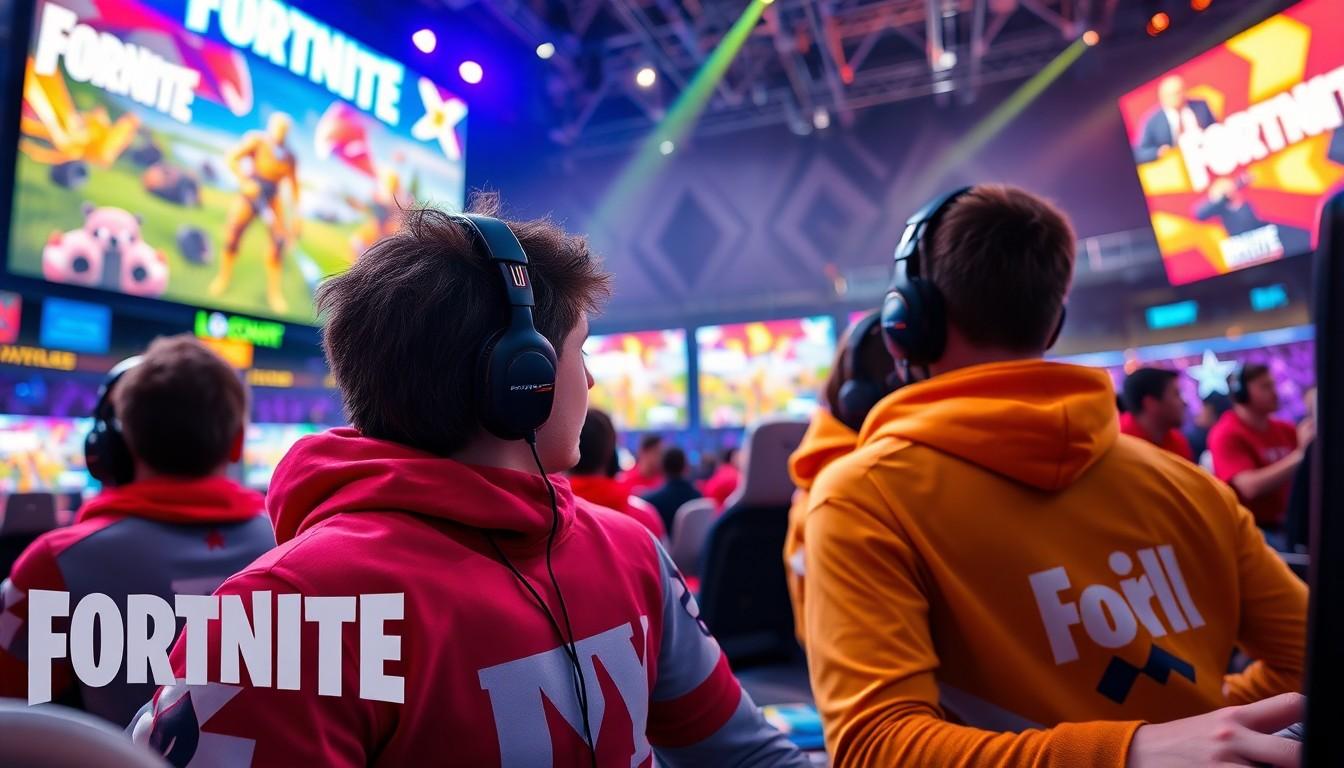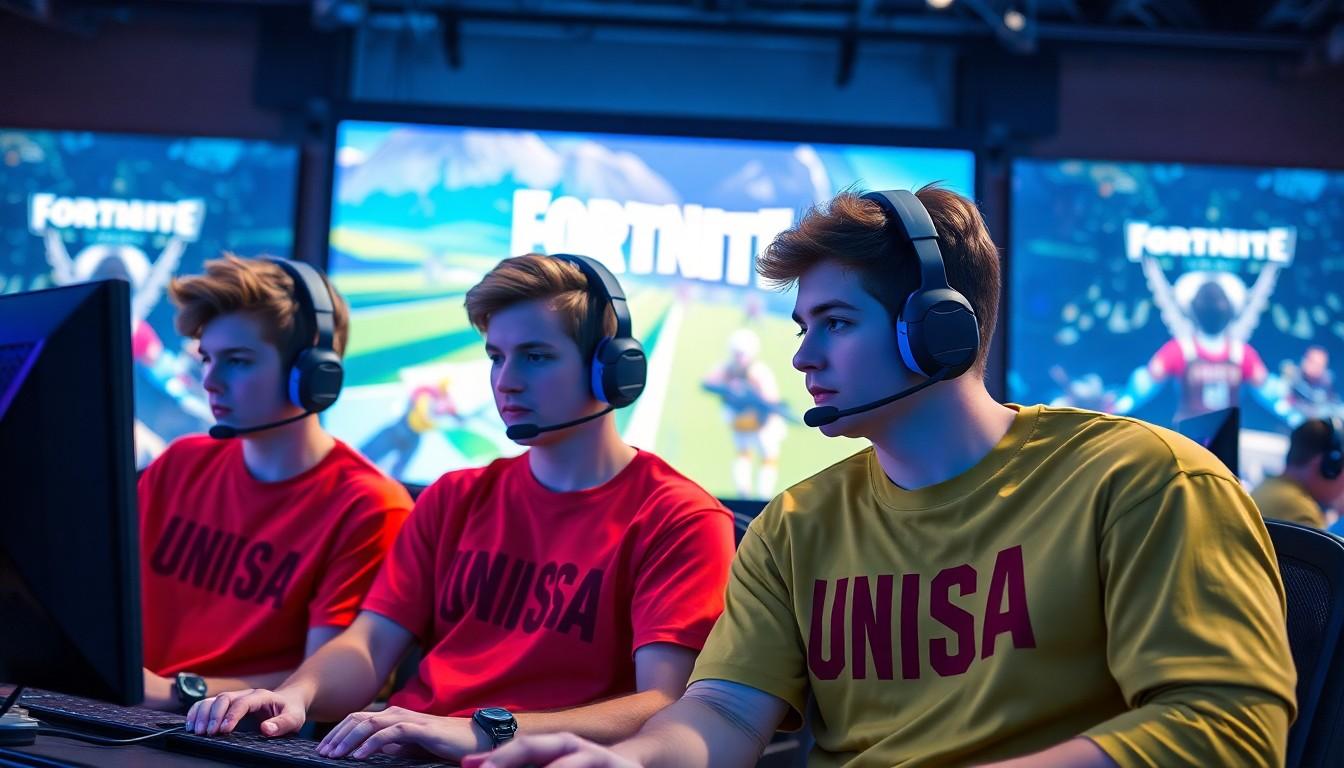In the fast-paced world of gaming, Fortnite esports teams are the rock stars of the virtual battlefield. With their slick moves and strategic plays, these squads don’t just build forts—they build legacies. From thrilling tournaments to jaw-dropping plays, they turn the game into a spectacle that keeps fans on the edge of their seats.
Fortnite Esports Teams
Fortnite esports teams play a crucial role in the competitive gaming landscape. These teams field talented players who showcase exceptional skills during matches. Several organizations, including Team SoloMid and FaZe Clan, represent some of the most successful squads in the scene.
Successful teams participate in various high-stakes tournaments throughout the year. Epic Games hosts events like the Fortnite World Cup, where top teams compete for significant prize pools. Players within these teams often form tight-knit groups, fostering collaboration and strategic synergy.
Training regimens for Fortnite teams emphasize skill development and teamwork. Daily practice sessions focus on mastering building mechanics, weapon handling, and map awareness. Analyzing past gameplay footage helps teams identify strengths and areas for improvement.
Team dynamics also influence performance. Communication and trust among players enable swift decision-making during critical game moments. Players often attend boot camps to strengthen their skills and improve cohesion ahead of major competitions.
Sponsorships add another layer of complexity to these teams. Various brands partner with squads, providing financial support and resources. Merchandise sales further solidify the team’s presence within the esports ecosystem, leading to enhanced fan engagement.
The fanbase surrounding Fortnite esports teams is diverse and active. Enthusiasts often engage on social media platforms and live-streaming services. This engagement fuels the teams’ popularity and drives viewership during events.
Overall, Fortnite esports teams represent the pinnacle of competitive gaming. Their skills and strategic prowess continue to captivate audiences worldwide. As the esports scene evolves, these teams adapt and innovate, pushing the limits of what’s possible in Fortnite gameplay.
Major Fortnite Esports Teams

Fortnite esports teams are at the forefront of competitive gaming, showcasing extraordinary talent and strategic prowess. Below are some of the most notable teams.
Team Liquid
Team Liquid has established itself as a powerhouse in the esports scene. The organization boasts a roster of skilled players, each bringing unique strategies to the game. Players like Jaden “Wolfiez” Ashman have contributed to Team Liquid’s impressive performances in various tournaments. With a focus on intensive practice and collaborative gameplay, Team Liquid continuously aims for top placements in competitions. Their participation in events such as the Fortnite World Cup highlights their dedication to excellence and teamwork.
FaZe Clan
FaZe Clan ranks among the most recognized esports organizations globally. Known for their dynamic gameplay styles, FaZe competes fiercely in high-stakes tournaments. Players like Turner “Tfue” Tenney have popularized the team through skillful plays and engaging personalities. This organization combines talent with a strong online presence across social media. A loyal fan base supports FaZe Clan, further enhancing their competitive edge in events.
Ninjas in Pyjamas
Ninjas in Pyjamas has made significant strides in the Fortnite esports landscape. With a roster featuring talented individuals who excel in both strategy and execution, they strive for consistent top-tier results. Their approach includes rigorous analysis of gameplay and intense training sessions. Ninjas in Pyjamas embodies a commitment to growth and adaptation in an ever-changing gaming environment. Participation in premier tournaments reinforces their reputation and showcases their abilities on a global stage.
The Impact of Fortnite Esports Teams on the Scene
Fortnite esports teams significantly influence the gaming landscape. Their presence has transformed competitive play and attracted a vast audience.
Popularity Increase
Fortnite’s esports teams fuel a surge in popularity for competitive gaming. Streaming platforms like Twitch showcase tournaments, allowing fans to watch thrilling matches live. Every competition elevates a team’s profile, drawing attention from casual gamers. Notable organizations such as Team SoloMid and FaZe Clan gain followers through consistent high-level play. Social media engagement further amplifies their reach. Players often highlight impressive skills, captivating new audiences and sustaining existing fans. Prize pools, often exceeding millions of dollars, increase the stakes and authenticity of the scene. The allure of professional play inspires aspiring gamers to strive for success.
Community Engagement
Community engagement thrives around Fortnite esports teams. Fans actively support their favorite players through social media, celebrating achievements and sharing highlights. Dedicated communities develop online, encouraging discussions, fan art, and participation in events. Interactive features like Q&A sessions provide fans with direct connections to players. Team merchandise strengthens bonds, allowing supporters to represent their favorites. Events such as meet-and-greets and local tournaments foster in-person connections and a sense of belonging. Sponsorships from popular brands enhance these interactions, promoting further engagement. As a result, Fortnite teams cultivate passionate, loyal communities that contribute to the game’s lasting popularity.
Challenges Faced by Fortnite Esports Teams
Fortnite esports teams face several challenges that can impact their performance and longevity.
Competitive Pressure
Competitive pressure intensifies as teams strive for top rankings in tournaments. Players encounter high expectations from fans and sponsors, which often leads to immense stress. Consistently performing well not only affects team reputation but also financial support. Rigorous schedules filled with practice and tournaments can lead to burnout. Maintaining focus during critical moments is essential for success in high-stakes environments. Teams must develop strategies to cope with these pressures while preserving their passion for the game.
Player Retention
Player retention presents another significant challenge for Fortnite esports teams. Talented players often receive offers from various organizations, leading to potential roster changes. Frequent transfers disrupt team dynamics and cohesion. Establishing strong relationships and trust among players is vital for stability. Competitive landscapes constantly evolve, prompting teams to adapt their strategies and rosters accordingly. Ensuring players feel valued and engaged helps mitigate turnover, allowing teams to cultivate long-lasting success.
Future of Fortnite Esports Teams
Anticipated advancements in Fortnite esports teams highlight the increasing integration of technology and analytics in training and gameplay. Enhanced data tracking allows players to analyze performance in real-time, optimizing strategies for competitive play. Teams investing in cutting-edge technology, like virtual reality, improve their practice environments, creating more immersive experiences.
Moving forward, player development will pivot toward a greater emphasis on mental health and well-being. Organizations recognize the importance of maintaining a healthy balance to combat burnout and sustain performance levels. Esports teams implementing support systems, such as psychologists and wellness programs, foster a positive environment for athletes.
Prize pools for major tournaments are expected to rise, drawing more players and teams into the competitive scene. Notable events in the Fortnite competitive calendar, like the Fortnite World Cup, will expand, attracting higher viewer engagement and sponsorship opportunities. Increased investment from brands bolsters team growth and suggests a promising financial future for successful organizations.
Fan interaction will continue evolving with the rise of platforms like Twitch and YouTube. Enhanced livestream experiences, including interactive features, create stronger connections between players and audiences. Community-driven events boost engagement, allowing fans to actively participate and support their favorite teams.
Recruitment will shift as teams look for well-rounded players possessing strong communication skills and adaptability. Organizations prioritizing team synergy and cultural fit gain a competitive advantage. Additionally, players focusing on streaming and content creation build personal brands that align with organizational goals.
Young players show increased aspirations to join established teams, echoing a growing interest in the Fortnite esports scene. The allure of professional gaming and potential sponsorship deals fuels their motivation. Continued success of Fortnite esports teams will hinge on innovation, mental health support, and fan engagement strategies that maintain excitement and momentum in the competitive landscape.
Generation of Gamers
Fortnite esports teams have reshaped the competitive gaming landscape with their remarkable skills and strategic prowess. Their influence extends beyond tournaments as they cultivate passionate communities and engage fans through social media and live streams.
As these teams navigate challenges like player retention and competitive pressure, their commitment to innovation and mental well-being will be vital for sustained success. The future looks promising with advancements in technology and analytics set to enhance gameplay and training.
With rising prize pools and an ever-growing fanbase, Fortnite esports teams will continue to captivate audiences and inspire the next generation of gamers.

